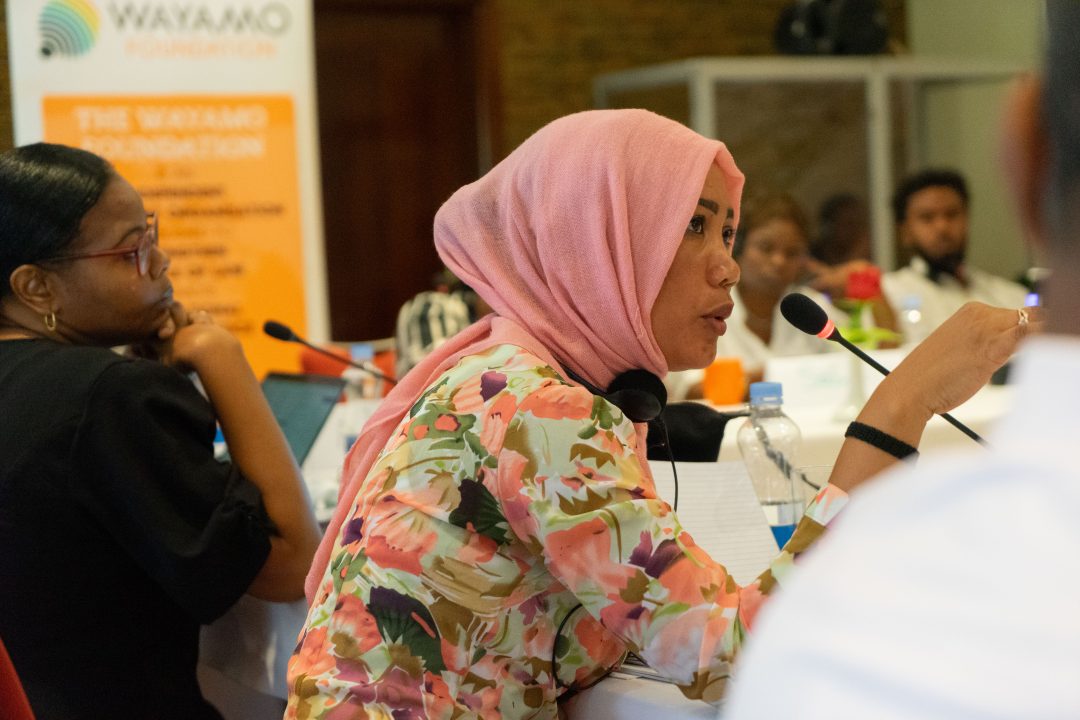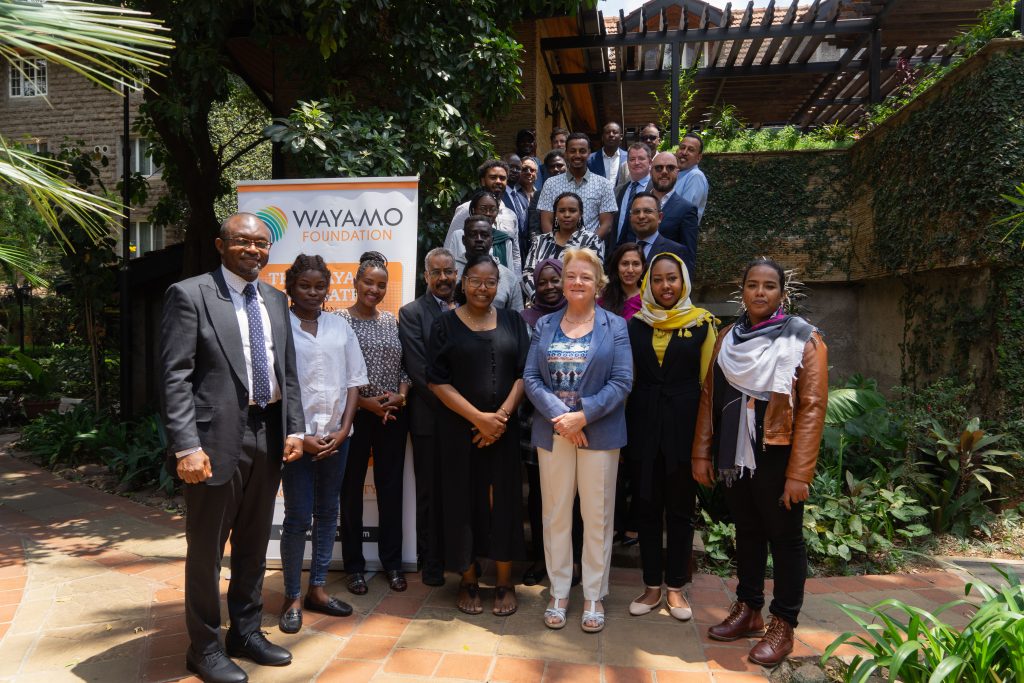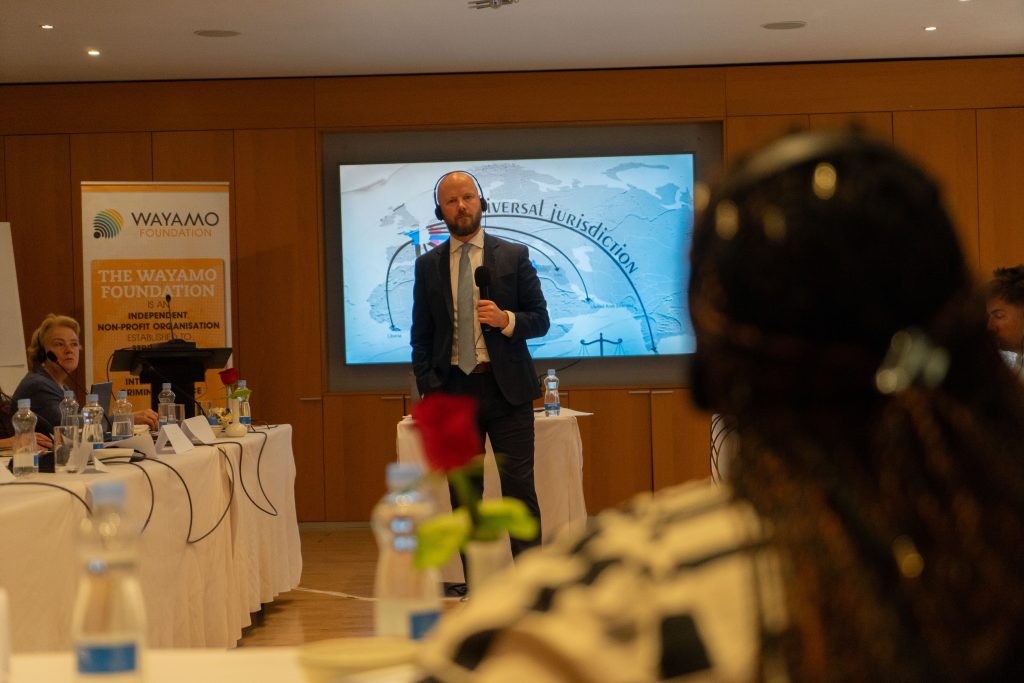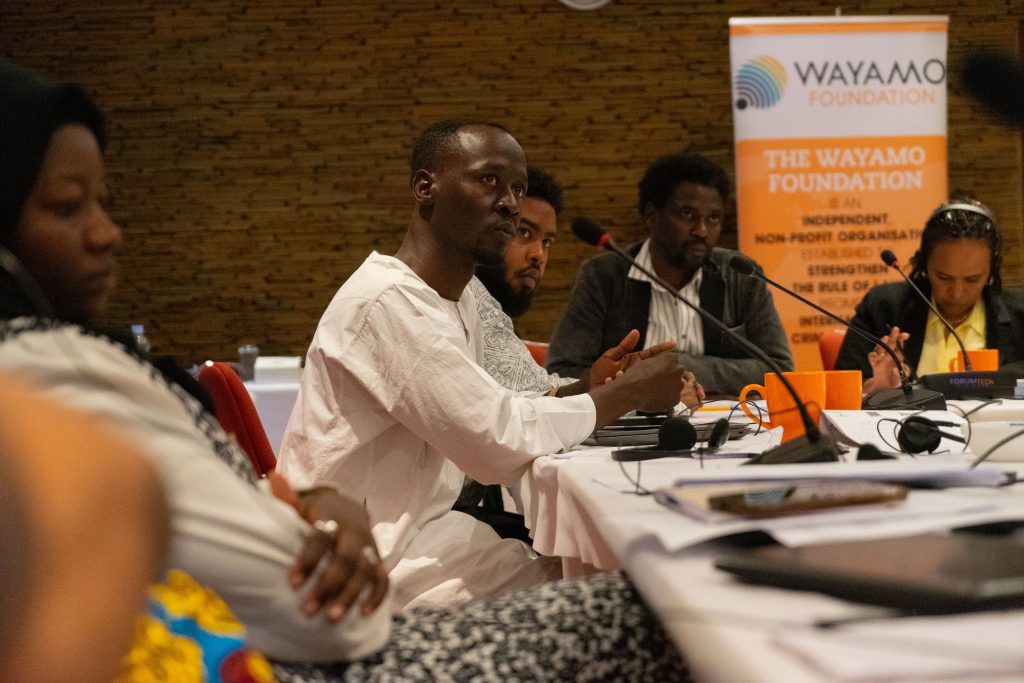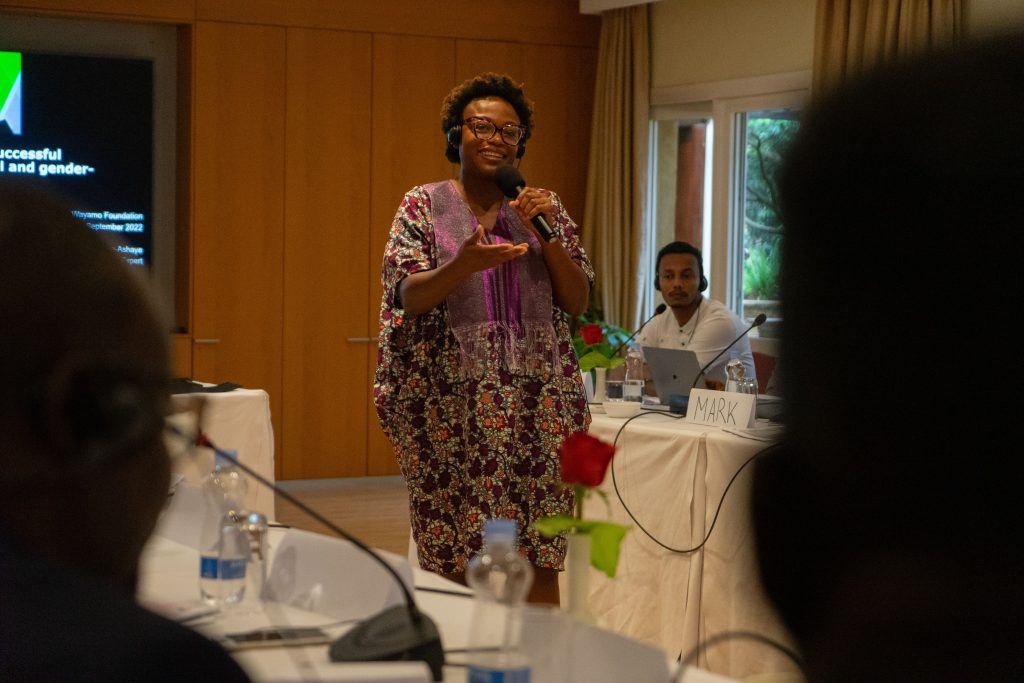With the financial support of the German Federal Foreign Office and the Ministry of Foreign Affairs of the Netherlands.
Click here for all the workshop pictures.
The Wayamo Foundation hosted a three-day workshop in Nairobi, Kenya, from 6-8 September 2023, on the topic of “modern forms of evidence and the potential application of universal jurisdiction in the East African region for international crimes committed in Sudan.” The workshop brought together Sudanese lawyers and human rights defenders, including those from Darfur, with experience in strategic litigation and the fight against impunity.
Bettina Ambach, Director of the Wayamo Foundation opened the workshop and thanked the participants from the Sudanese diaspora based in Kenya, Uganda, Egypt, Qatar and Ethiopia for their attendance. She emphasised that through workshops such as this one, “Sudanese lawyers and human rights defenders can be equipped with tools that would enable them to be proactive even in the midst of war.” This involves capacity building in the documentation of human rights violations in Sudan with a special focus on open-source information as well as addressing what can be done with potential evidence that is collected to help combat impunity for human rights violations and international crimes.
The workshop focused on different accountability mechanisms for international crimes including the application of universal jurisdiction, investigatory practices, modern forms of evidence, including open source information, and ways in which such evidence can be used in practice. The workshop also addressed the challenges and opportunities for the successful investigation and prosecution of sexual violence. The training consisted of information sessions, discussion and dialogue, as well as a practical break-out session based on a hypothetical case study. Through these efforts it is hoped that a coalition of civil society and legal actors committed to addressing impunity in Sudan will be built, to pursue international, regional and domestic accountability measures, including by sowing the seed for universal jurisdiction opportunities in the East African region.
The participants engaged with experts including, Akingbolahan Adeniran, former Attorney-General of Ogun State, Nigeria, and international criminal law expert, Abdalbasit Mohamed, Legal and Research Officer, Wayamo Foundation, Jarrod Noble, Investigator at the International Criminal Court, Mohamed Abdelsalam Babiker, Associate Professor of Law, University of Khartoum, Gizouli Mohammed Adam, American Bar Association, Mark Kersten, Assistant Professor of Criminology and Criminal Justice, University Fraser Valley, Canada and Senior Consultant, Wayamo Foundation, Jagganaden Muneesamy, Acting Assistant Director of Public Prosecutions, Office of the Director of Public Prosecutions, Mauritius, Libby McAvoy, Legal Advisor, Mnemonic, Wilfred Nderitu SC, Advocate of the High Court of Kenya, List Counsel at the ICC, MICT and STL, Saeeda Verrall, Legal Officer at the United Nations and Adejoké Babington-Ashaye, International Law Specialist and former ICC Investigator. The sessions were moderated by Mikel Delagrange, ICJ/Victims Expert, Wayamo Foundation and Linda Bore, International Criminal Justice Lawyer and Project Coordinator, Wayamo Foundation.
An evaluation was conducted at the end of the workshop, where participants expressed their satisfaction with the topics covered and the quality of the presentations. A sample of the participants comments are highlighted below:
On the substantive and procedural challenges facing domestic and international accountability for international crimes in Sudan:
- This was one of the most important sessions, as it focused on Sudanese laws and avenues for justice for Sudan.
- The session gave us a lot to think about especially as we navigate how to achieve accountability for crimes that are being committed in Sudan.
On the concept of universal jurisdiction and its application in the East Africa region:
- The session was very important because we learnt about the practical application of universal jurisdiction, especially with Kenya’s previous experience in issuing a warrant of arrest for former President Omar Al-Bashir. With the strength of the intellectual community in Kenya, the country can play a major role in confronting the perpetrators of crimes in the region.
- It was an excellent lecture, especially in explaining how Sudan would benefit from holding trials outside its geographical borders, when neighbouring states may exercise universal jurisdiction.
International criminal cases and modern forms of evidence:
- It was an eye-opening experience to learn from the experience of civil society in Latin American countries, where through them the government was pressured to investigate the violations in their own countries and even abroad. The next step is for us as civil society to learn how we can network with jurists in pursuing accountability for the serious human rights violations committed in Sudan.
Case scenario, group exercise, presentations, and feedback from the experts:
- Very useful. It was the best part of the workshop, for me.
- We were a wonderful work team. We learned from each other and benefited from the workshop in becoming better at analysing the important issues.
On the ongoing Darfur case at the ICC:
- It was very important to hear about how the Ali Kushayb case has developed up to this stage.
- It was important to hear about the ongoing developments at the ICC with regard to historical crimes but also with regard to the contemporaneous crimes committed in Darfur right now.
The workshop was held in the context of Wayamo’s ongoing project “Capacity building for civil society and the justice sector in Sudan” project, which provides training in international criminal law, international humanitarian law and human rights to civil society and legal actors both in Sudan and the East African region, specifically Kenya, aimed at building a coalition committed to addressing impunity through regional and domestic accountability measures, such as national court systems.

